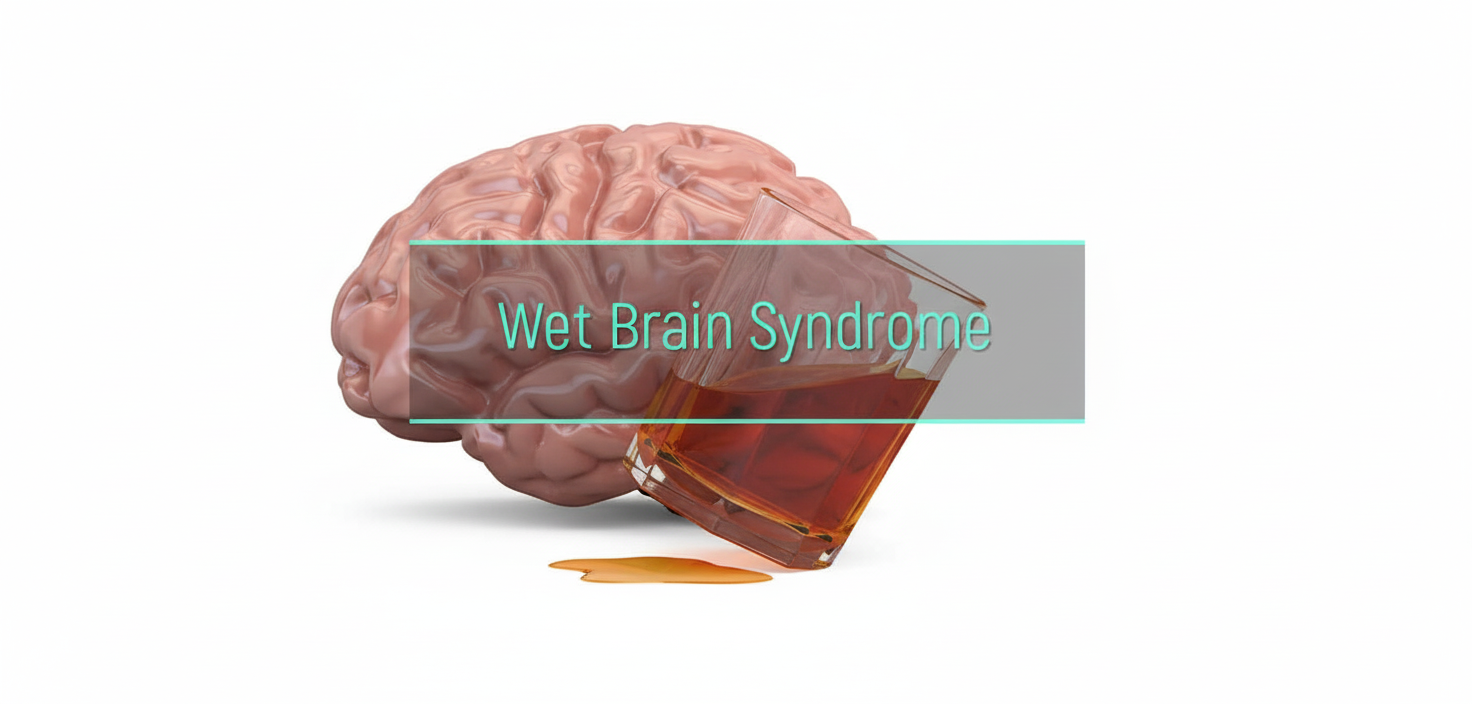Alcoholism affects the brain in profound ways, and one of the most severe consequences is the development of wet brain, medically known as Wernicke-Korsakoff’s Syndrome (WKS). This condition is a long-term effect of chronic alcohol use, gradually damaging the brain over years of heavy drinking. Understanding wet brain is essential, especially for individuals with alcohol dependence, their families, and caregivers.
What Is Wet Brain?
Wet brain is a form of cognitive impairment caused by physical brain damage due to chronic alcohol consumption. The root cause is a vitamin B1 (thiamine) deficiency, which is essential for proper brain function.
Wernicke-Korsakoff’s Syndrome encompasses two related conditions:
- Wernicke’s Encephalopathy – the early stage, which can cause confusion and coordination problems.
- Korsakoff’s Psychosis – the later stage, marked by severe memory issues and difficulty forming new memories.
How Alcohol Causes Wet Brain
Alcohol disrupts thiamine absorption in multiple ways:
- Brain absorption: Chronic alcohol use reduces the brain’s ability to utilize thiamine.
- Liver and digestive effects: The liver stores thiamine, and the gastrointestinal tract absorbs it from food. Heavy drinking depletes liver stores and impairs absorption.
- Poor diet: Many individuals replace meals with alcohol, further reducing thiamine intake.
These factors together create a dangerous cycle that can ultimately result in wet brain.
Symptoms of Wet Brain
The symptoms of wet brain progress as Wernicke’s Encephalopathy develops into Korsakoff’s Psychosis.
Wernicke’s Encephalopathy Symptoms:
- General confusion
- Loss of muscle coordination
- Tremors in the legs
- Vision changes, including double vision
- Abnormal eye movements and drooping eyelids
- Slow, unsteady walking
- Weakness in limbs
- Drowsiness or fainting
- Rapid pulse and low blood pressure
- Fatigue and low energy
Korsakoff’s Psychosis Symptoms:
- Difficulty forming long-term memories
- General memory loss
- “Dry drunk” personality
- Fabricating stories to fill memory gaps
- Hallucinations
Note: Symptoms often appear only after the disease has significantly progressed, making early detection challenging but critical.
Key Statistics About Wet Brain
- Wet brain can shorten lifespan by up to 30 years.
- Approximately 2% of the U.S. population suffers from WKS, mostly chronic alcohol users.
- Even with treatment, many patients retain long-term cognitive impairments.
- Severe WKS has a mortality rate of up to 20%, and about 25% may require long-term institutional care.
- Daily heavy drinkers and those genetically predisposed to addiction are at higher risk.
Diagnosis and Prognosis
Diagnosing wet brain is complex due to symptom overlap with other cognitive disorders and alcohol-related memory loss. The process usually involves:
- Confirming chronic alcoholism through history, liver function tests, and physical exams.
- Conducting blood tests to check for thiamine deficiency.
- Using imaging scans (CT, MRI) to assess brain damage.
Prognosis:
- Early-stage WKS patients may achieve a normal life with proper treatment.
- Advanced stages often result in permanent memory loss and cognitive issues, though treatment can improve quality of life.
Treatment for Wet Brain
Treatment aims to halt or slow disease progression and restore thiamine levels:
- Vitamin B1 supplementation: IV, injections, or oral pills.
- Thiamine-rich diet planned by a nutritionist.
- Concurrent alcohol withdrawal treatment to manage complications.
Early intervention is critical—delayed treatment may result in irreversible damage.
Preventing Wet Brain Through Alcohol Treatment
Anyone with alcoholism is at risk for WKS. Seeking treatment early can prevent permanent brain damage. Alcohol treatment centers provide care for all stages of addiction, including support for thiamine deficiency and recovery programs tailored to individual needs.
Conclusion
Wet brain is a devastating consequence of chronic alcohol use, caused primarily by vitamin B1 deficiency. Recognizing the symptoms of Wernicke-Korsakoff’s Syndrome, seeking early intervention, and addressing alcoholism are crucial for minimizing brain damage and improving life expectancy. If you or a loved one struggles with alcohol, professional help is essential to prevent long-term cognitive decline and enhance quality of life.
